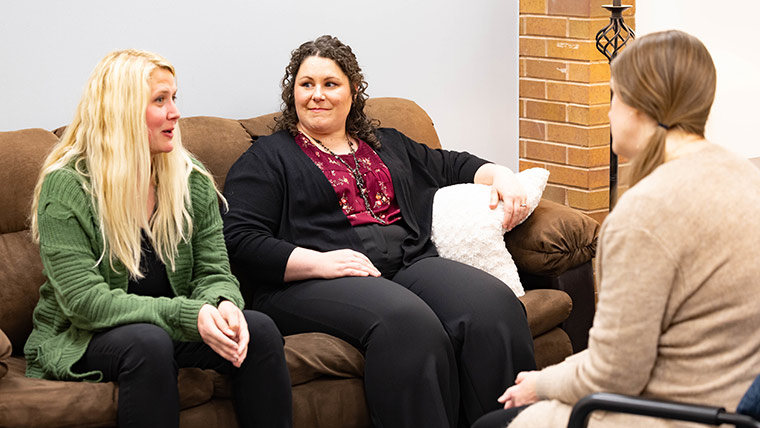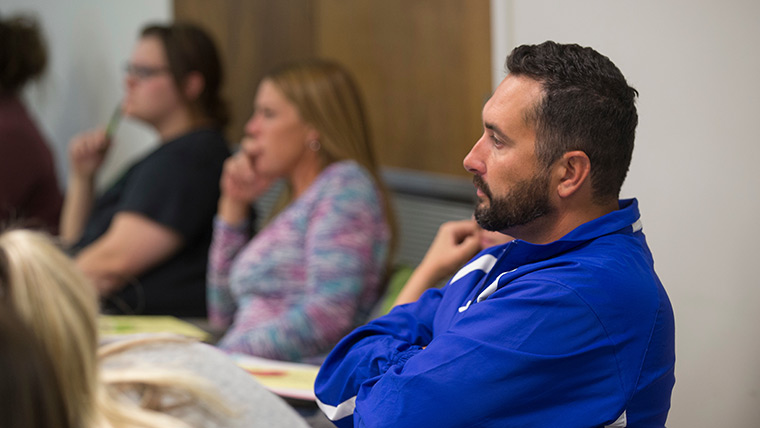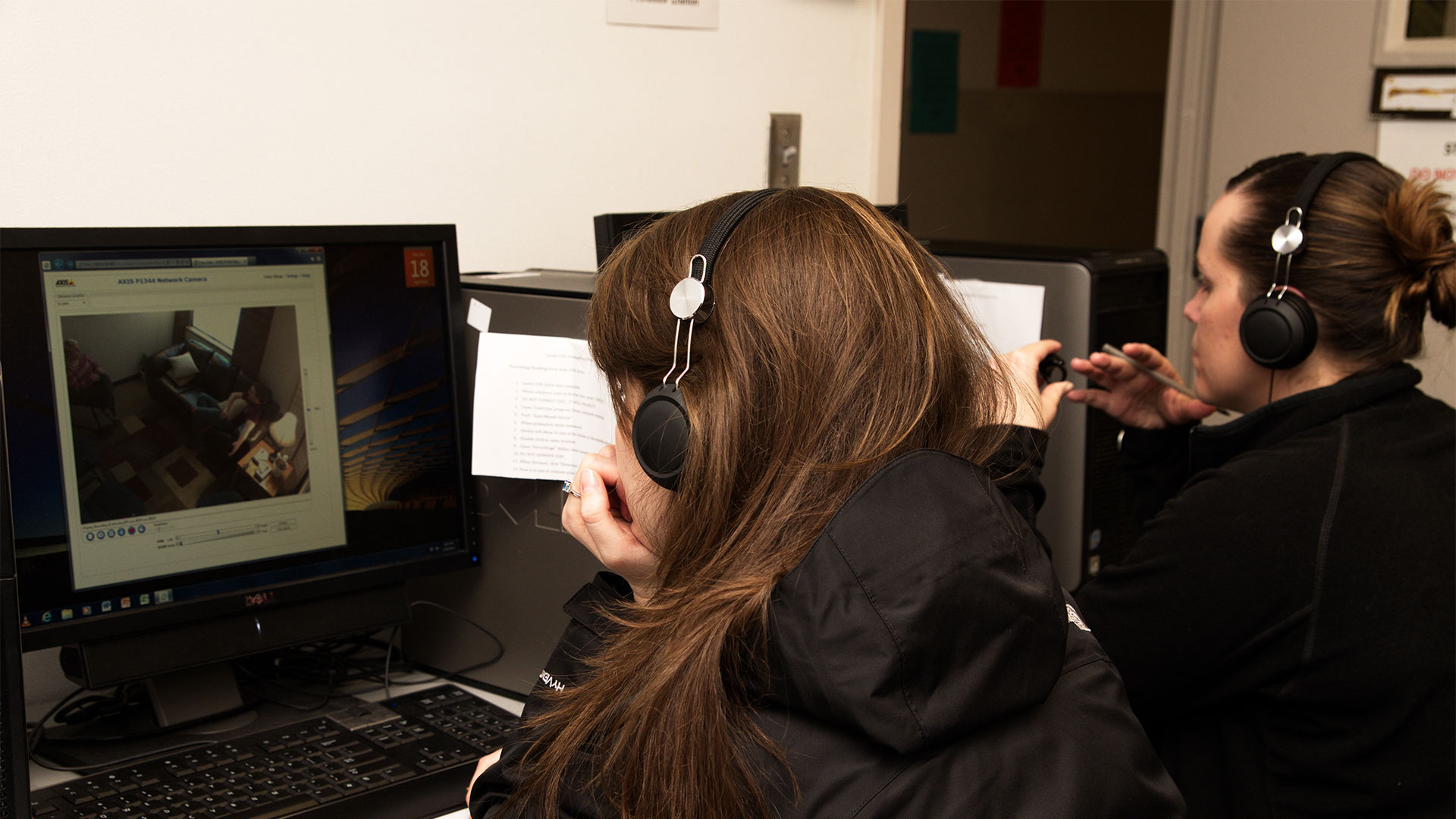Overview
The counseling graduate program at Missouri State University is housed in the McQueary College of Health and Human Services in the School of Mental Health and Behavior Sciences. The program has achieved and maintained accreditation through the Council for Accreditation of Counseling and Related Educational Programs (CACREP) since 2015.
At MSU, we offer the Master of Science in Counseling degree with two CACREP-accredited program options for those seeking graduate degrees in the field of counseling: School Counseling (SC) and Clinical Mental Health Counseling (CMHC).
Program options
Focus your counseling degree on the field you want to pursue.


Philosophy
We believe becoming a counselor is a life changing process and is best accomplished through increasing self-awareness, other awareness, and a capability to enter a healing process with others. We believe the work of this process is accomplished through, or developed in a challenging, yet supportive learning environment within which we expect students to take risks and become critical consumers of research and professional knowledge. We believe learners have a responsibility for their own learning process including self-assessment.
Mission Statement
The mission of the Counseling Program is to provide high quality curricular and clinical experiences for graduate students in the counseling profession, leading to eligibility for certification and licensure as professional counselors. We develop competent and ethical counseling practitioners who have a deep level of self-understanding, to work effectively with diverse clients in a variety of settings to facilitate the dignity, well-being, and potential of all people. Students graduate with knowledge and skills in core competency areas that include professional identity, social and cultural foundations, human growth and development, career development, helping relationships, group work, assessment, research, and program evaluation.
Counseling Program Objectives
There are eight core curriculum areas and two specialized application areas. The curricular objectives are arranged according to these areas and incorporate requirements by CACREP and DESE guidelines. The core areas address both cognitive acquisitions (knowledge) and skill attainment. Experiences are organized to provide introduction, essential practice, and mastery of critical concepts and skills. Below are the objectives designed for this program based on our mission statement and CACREP standards.
- Knowledge: Students will demonstrate appropriate breadth and depth of knowledge and comprehension in the areas of culturally relevant service, prevention, treatment, referral, and program management associated with the broader field of counseling as well as the selected specialty (i.e., clinical mental health or school counseling).
- Clinical Skills: Students will demonstrate meaningful, therapeutic alliances that utilize culturally sensitive appraisal and assessment techniques for working with individuals and groups in a culturally pluralistic world.
- Research and Appraisal: Students will demonstrate analytical knowledge and skills for appraising and contributing to professional counseling literature and program evaluation in selected specialty areas (i.e., clinical mental health or school counseling).
- Professional Dispositions: Students will conduct themselves in accordance with the highest ethical standards and values of professional counseling and develop an understanding of oneself and the use of self in the counseling process.
- Specialty Areas: Students will demonstrate appropriate breadth and depth of knowledge and skills in their respective specialty areas (i.e., clinical mental health or school counseling).
